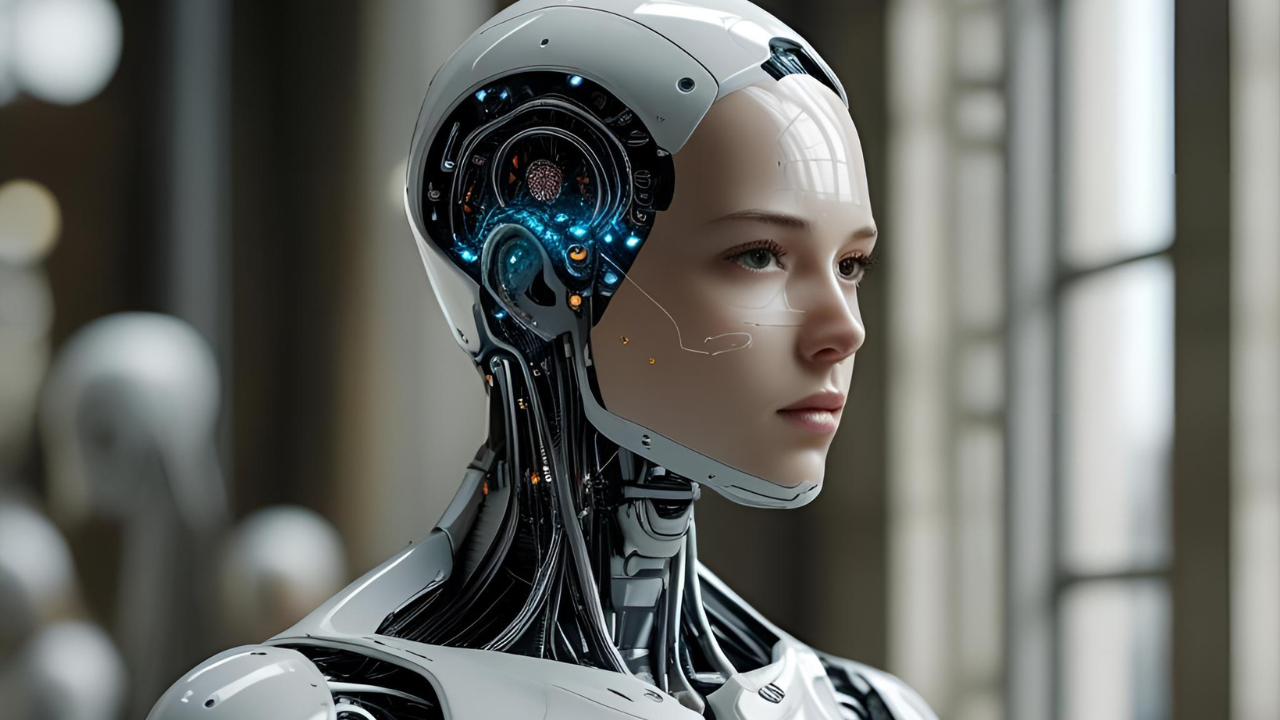The rise of artificial intelligence (AI) is poised to transform multiple aspects of human life, but it also raises complex questions about ethics, employment, and the future of society. As AI becomes more integrated into everyday life, it’s crucial to explore the implications of its development and application. Below are 10 thought-provoking questions about AI, along with some insights on each.
How will AI impact the future of humanity?
Stephen Hawking famously warned that the development of full artificial intelligence could spell the end of the human race. He believed that AI could evolve at an uncontrollable rate, surpassing human capabilities and threatening our existence. While some see AI as a tool for improving lives, others fear it could become too powerful, leading to unforeseen consequences. As AI progresses, we must consider its potential dangers and ensure its development is aligned with humanity’s best interests.
What is the general public’s perception of AI’s impact on society?
According to a Pew Research Center survey, 56% of Americans view AI’s impact on their lives as neutral, and a significant portion of the population is more concerned than excited about its increased role. While AI holds the potential to improve efficiency and productivity, there is apprehension about its effects on privacy, employment, and personal autonomy. As AI continues to shape our daily lives, public perception will play a key role in guiding its adoption.
Why are people more concerned than excited about AI?
Many Americans express more concern than excitement about AI’s integration into daily life, with fears surrounding privacy violations, job displacement, and control over AI systems. While the technology holds promise, these concerns highlight the need for careful regulation and transparent development to address the public’s anxieties and ensure AI benefits society as a whole.
How does AI assist researchers?
AI significantly enhances the efficiency of research by processing vast amounts of data at speeds unimaginable for humans. For example, AI can sift through global databases to find relevant literature, saving researchers time and effort. This capability enables breakthroughs in fields such as medicine, environmental science, and technology, accelerating progress and fostering innovation.
What are the key advantages of AI?
Speed, efficiency, and accessibility are often cited as the main advantages of AI. For instance, AI-powered facial recognition technology can speed up processes like border control, improving security and convenience. Similarly, AI can automate repetitive tasks, allowing humans to focus on more creative and complex problems. These benefits make AI a powerful tool across many sectors.
What are the disadvantages of AI?
While AI offers many advantages, there are notable drawbacks, including the high cost of implementation, potential job loss, and the absence of human-like emotional intelligence and creativity. Many fear that AI could replace jobs, especially in fields requiring routine or manual tasks. Balancing these disadvantages with the benefits of AI will be crucial to ensuring its responsible use.
What AI applications are viewed positively by the public?
Despite some concerns, many people view AI positively in areas such as healthcare, security, and scientific research. Technologies like medical diagnostic AI systems and AI-powered security surveillance have been hailed for their potential to improve outcomes and safety. However, there is still caution regarding AI’s use in other domains, particularly in areas that impact personal privacy.
How does AI affect worker productivity?
AI has the potential to enhance productivity, especially for less experienced workers, by providing tools and insights that help them perform tasks more effectively. Younger workers may find it easier to adapt to AI-driven tools, while older workers may face challenges in keeping up. The integration of AI into the workplace could reshape labor dynamics, with significant implications for income inequality and skill development.
Is AI a replacement for human intelligence?
AI should not be viewed as a replacement for human intelligence but rather as a tool to augment our capabilities. While AI excels in processing large datasets and performing repetitive tasks, it lacks the intuition, creativity, and emotional understanding that humans bring to decision-making. It’s important to recognize the strengths of both AI and human intelligence and ensure they complement each other.
Which jobs are most likely to be automated by AI by 2030?
Many jobs, particularly those that involve repetitive tasks, are expected to be automated by AI by 2030. These include roles such as cashiers, telemarketers, and data entry clerks. Even white-collar jobs like legal assistants and financial advisors could be affected as AI advances in data analysis and decision-making. As AI continues to develop, it’s vital for workers to adapt by acquiring skills that AI cannot easily replicate.

